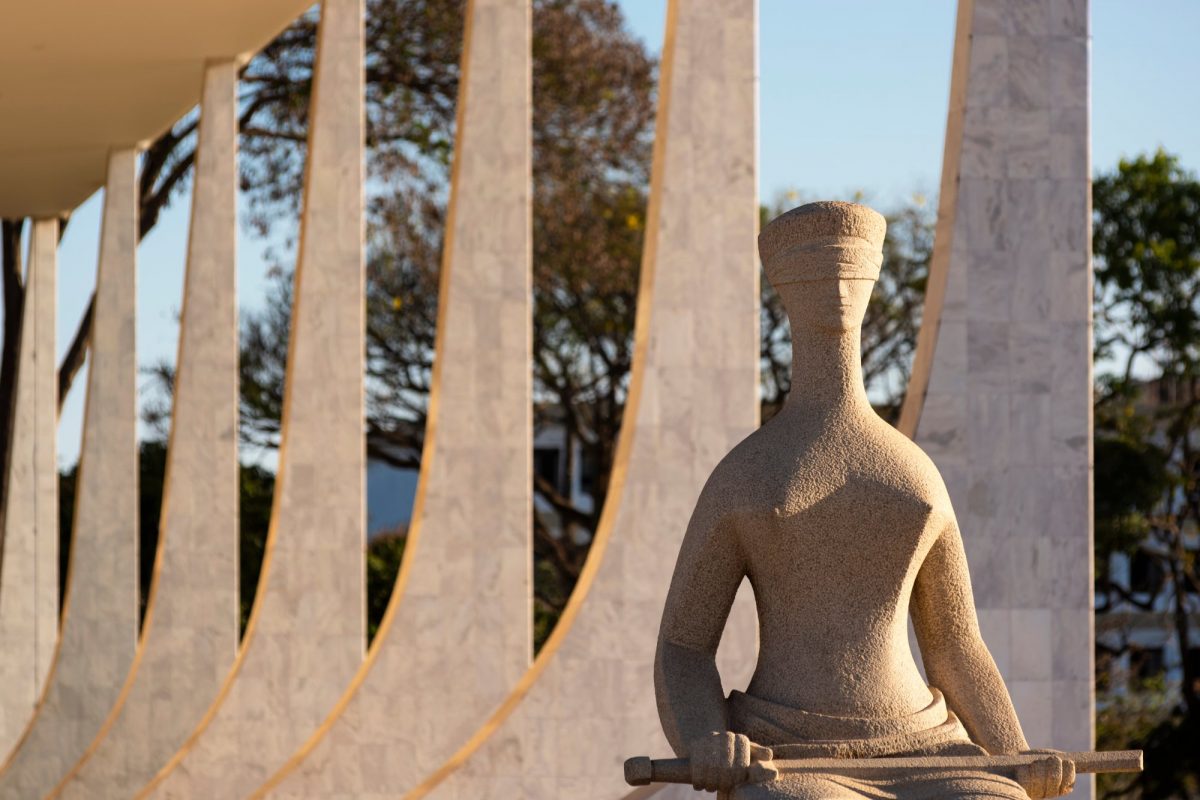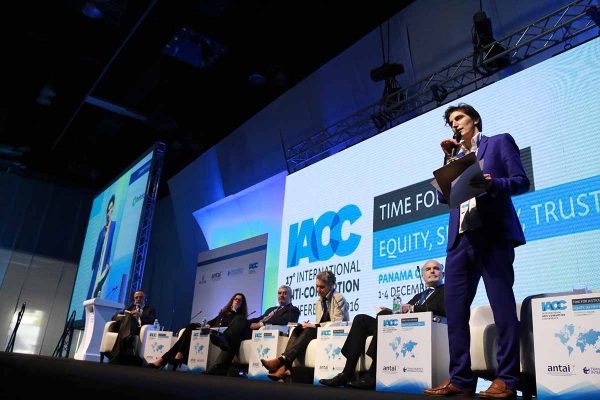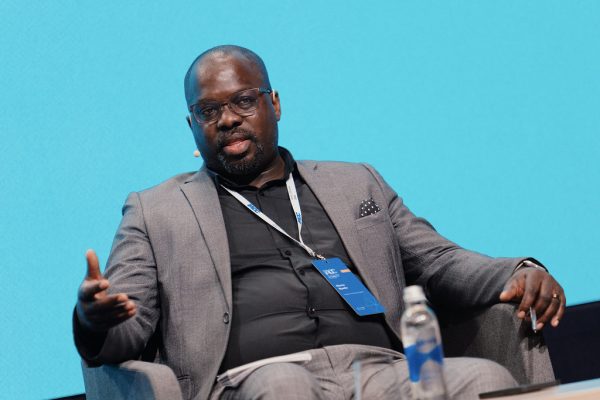The judicial harassment of investigative journalists has become a common practice in South America, as political and business elites seek to force newsrooms to drop investigations or to discredit their findings.
In Brazil and Colombia, lawsuits against reporters have increased in recent years.
“Freedom of expression is under attack,” said Colombian journalist Claudia Báez on June 18 during a panel at the International Anti-Corruption Conference (IACC) in Vilnius, Lithuania.
Báez is the CEO and co-founder of Cuestión Pública, a news outlet which recently launched the collaborative investigation platform, Indi$cregram. This news venture scrutinises the business dealings, corporate relationships, and conflicts of interest of Colombian lawmakers.
One investigation in particular spelled trouble for Báez and her team. In 2021, they published a deep dive into the lengthy political career of Juan Diego Gómez, who was then serving as President of the Senate. In the publication they reported on connections between Gómez and certain individuals accused of political corruption and drug trafficking. Gómez quickly responded by suing Báez for defamation, denying all allegations and claiming her work tarnished his reputation. Báez won the legal case. The Superior Court of Bogotá attested there´s no “biased, wrong or even false information” in the article.
“We are under attack. We live in a violent country. After the 2016 peace process [with the Revolutionary Armed Forces of Colombia – FARC], a lot changed in Colombia, but we continue to face judicial and legal harassment against journalists,” said Báez.
Thousands of Brazilian journalists are facing a similar plight, as shown by a recent report by the Brazilian Association of Investigative Journalism (Abraji). Between 2008 and April 2024, 654 cases of judicial harassment against journalists were recorded. One particularly noteworthy case was that of journalist Elvira Lobato, who was sued 111 times by members of the Igreja Universal do Reino de Deus (Universal Church of the Kingdom of God) after she published a 2007 report, stating that this religious group was in fact a “business empire.”
Lobato was accused of ridiculing the church, but no material evidence refuting her report was provided. All the lawsuits were ruled in favour of Lobato and her newspaper, the Folha de S.Paulo.
Reinaldo Chaves, Abraji’s project coordinator, highlighted at the IACC that judicial harassment tends to be more intense against women. “Many investigative journalists have been sued, and it is much worse when it is a woman journalist. Women also suffer misogynistic attacks,” he said.
Chaves explained that, in addition to the flood of lawsuits, journalists are also exposed to coordinated attacks with political purposes and “doxing”—a term for when their personal information is leaked publicly on the internet. He cited the case of Brazilian journalist Patrícia Campos Mello, who was targeted by coordinated attacks on social media from supporters of former Brazilian President Jair Bolsonaro.
Bolsonaro also targeted Campos Mello, suggesting during a public address that she had offered to have sex with a source to get damaging information on him. A court ruled the former president had to pay damages to the journalist, but attacks against her continued.
Brazil has seen particularly harsh rulings against journalists. In 2022, Rubens Valente was ordered by the country’s Supreme Federal Court (STF) to pay around $54,000 in damages to Gilmar Mendes, a judge on that same court.
In a 2014 book, Valente stated that Mendes had ordered the release of a businessman who had been arrested after being accused of corruption and bribery, Daniel Dantas.
The libel case’s indictment argued that there was decontextualisation of facts and that Valente insinuated partiality of the judge in the court trial.
However, in May 2024, the STF ruled that it was illegal for any party to file repeated lawsuits against the media or journalists in order to stop the freedom of the press.
For Chaves, there are ways for journalists to protect themselves from such harassment, including seeking collaborative investigations with other media and maintaining constant contact with associations of journalists and press freedom activists to protect themselves legally.
“To avoid this…collaboration is key,” he said.


